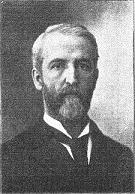By T. T. Eaton, 1900


The Philadelphia Confession of Faith is not responsible for the wild interpretations put upon it, any more than the Bible is responsible for the same thing. That Confession is a venerable and, in many respects, a noble document, and we hope the wild interpretations some are seeking to put on it will not bring it into disrepute.The attempt is made to make it appear that the Philadelphia Confession declares that Christ built "the universal invisible church" on the Rock, which "universal invisible church" should exist in all ages; and also that this Confession opposes the view that Baptists have existed in every age since the Apostles. This is a gross and a groundless misrepresentation of that venerable document. It says:
"The Catholic or universal church which, with respect to the internal work of the Spirit and truth of grace, may be called invisible, consists of the whole number of the elect that have been, are, or shall be gathered into one under Christ, the head thereof, and is the spouse, the body, the fullness of him that filleth all in all."Let this language be noted. The Romanists claimed that their hierarchy was "the Catholic or universal church," and these Baptists in Philadelphia contradicted that claim by declaring that only "the whole number of the elect that have been, are, or shall be gathered into one" can rightly be called "the catholic or universal church." It takes all the elect of all ages to make "the catholic or universal church." Of course, then, the little fraction of them alive at any given time cannot be called the church. Of course, then, this church cannot exist in every age, because its material, except a part of it, and perhaps a very small part, had not come into existence when our Baptist fathers adopted that language. If the world shall continue ten thousand years longer, the last man saved will be part of the "universal church," which this document declares to be composed of "the whole number of the elect that have been, are [A. D. 1742. - B. M. Bogard, editor.], or shall be gathered into one," etc. To talk about all the elect as existing through all ages, is ridiculously grotesque. It is likely that only a small fraction of them have even yet (A. D. 1899) come into existence; and certainly those born since 1742 could not have continued in existence before that date. What, pray, have men born in the 20th century to do with resisting the "gates of hell" in the 10th century? Let it be remembered that, according to the Philadelphia Confession, it takes all the elect of all ages to make "the catholic or universal church" -- not the part of them alive in one age.
Let it be noted also that this Confession makes not the slightest hint that Christ meant this "catholic or universal church" when He said: "On this rock I will build my church." Matt. 16:18, is not quoted at all.
This "universal church" is "invisible" only "with respect to the internal work of the Spirit." It will be visible when it is "gathered into one." Of course, the internal work of the Spirit is invisible.
There is also in this entire Confession not the slightest suggestion that there has been a day since the Apostles when there were no Baptists in the world. On the contrary, all that is said on the subject assumes their continued existence. But since that was not then a matter of dispute, the document is not very full on that point. Thomas Crosby had just issued his great history in which he distinctly claimed, and argued at length to maintain the claim, that Baptists had continued in the world from the Apostles to his day; and these Baptists in Philadelphia took for granted that this was generally admitted among their brethren, and needed not to be specially declared. Nevertheless, this Confession does say:
"The purest churches under heaven are subject to mixture and error, and some have so degenerated as to become no churches of Christ, but synagogues of Satan; nevertheless, Christ always hath had, and ever shall have, a kingdom in this world, to the end thereof, of such as believe in him and make profession of his name."In spite of the fact that "the purest churches under heaven are subject to mixture and error," and some have gone so far astray as to become "synagogues of Satan," yet all of the Churches have not thus gone astray, but "Christ always hath had and ever shall have a kingdom in this world, of such as believe in him and MAKE PROFESSION OF HIS name," i.e., of pure churches which do not become "synagogues of Satan."
Again this Confession declares:
"A particular church, gathered and completely organized according to the mind of Christ, consists of officers and members; and the officers, appointed by Christ to be chosen and set apart by the church so called and gathered for the peculiar administration of ordinances and execution of power and duty which he entrusts them with, or calls them to, to be continued to the end of the world, are bishops, or elders, and deacons."Then there have been, according to this document, particular churches "gathered and completely organized according to the mind of Christ," "for the peculiar administration of ordinances," etc., in all ages; since "according to the mind of Christ" they were "to be continued to the end of the world." And yet we are asked to believe that the Philadelphia Confession is opposed to the idea of the continuity of Baptists through the ages since the Apostles!
================ [From Ben M. Bogard, editor, Pillars of Orthodoxy, or Defenders of the Faith, 1900, pp. 194-196. Scanned and formatted by Jim Duvall.]
Baptists: Various Subjects Page
Baptist History Homepage